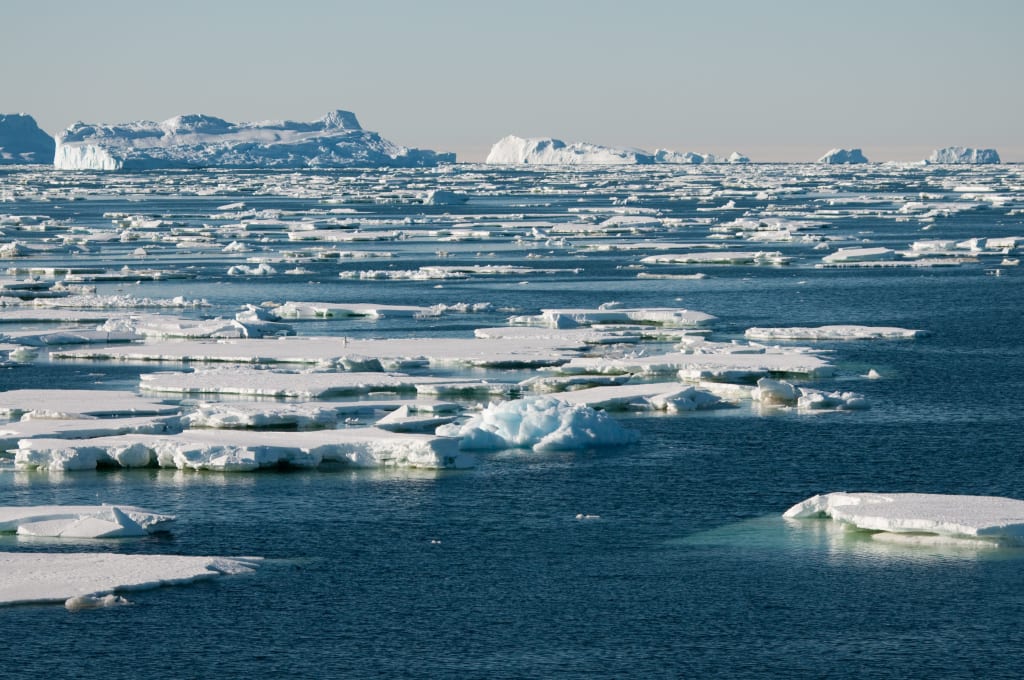
Atartica is warming at an allarming rate now!
Antarctica, the Earth's coldest and driest continent, is experiencing a rapid increase in temperature. Specifically, the West Antarctic sheet is losing ice, leading to a significant rise in sea levels. A recent scientific study reveals that Antarctica is warming nearly twice as fast as the global rate, which could have serious consequences for rising sea levels. The study analyzed 78 ice cores spanning 1,000 years and found that the warming in Antarctica is beyond natural fluctuations. In the western region of the continent, there is a large ice sheet that is particularly vulnerable to warming. If this warming trend continues, there is a higher chance of the ice sheet collapsing, resulting in a several-meter rise in global sea levels. This phenomenon is alarming because ice sheets take thousands of years to form, but extreme events can cause them to collapse in a matter of hours or days. Climate scientists have long predicted that the polar regions would warm faster than the rest of the world. A research published in Natural Climate Change confirms that Antarctica has been warming at a rate between 0.22 degrees Celsius and 0.32 degrees Celsius. Additionally, sea ice in the Antarctic region has been steadily declining to a record low, and experts warn that reversing the damage will not be a quick fix. In March 2022, ocean heat content reached record high levels, leading to an ocean heat wave. This heat wave brought both high temperatures and moisture, primarily to East Antarctica. During this period, the cuanga ice shelf, roughly the size of Rome, collapsed. The collapse resulted in a river of moisture from lower latitudes directing an enormous amount of precipitation to East Antarctica. This led to a record amount of surface melt and exceptionally high temperatures, with an automatic weather station in the interior of the continent recording temperatures 40 degrees Celsius higher than the typical March mean. A report by the Potsdam Institute of Research warns that while the Antarctic ice sheet has not yet destabilized, the point of no return may come sooner than later. Preserving Antarctica is crucial for the world and its climate. Currently, the Antarctic ice sheet is losing six times more mass into the ocean than it was 30 years ago. If the entire ice sheet were to melt, global sea levels would rise by approximately 57 meters, submerging the entire planet. Experts suggest that extreme events will likely intensify as global temperatures continue to rise, particularly due to factors such as rapid sea ice decline. In conclusion, the warming of Antarctica, particularly in the West Antarctic region, is a cause for concern as it contributes to rising sea levels. The rate of warming in Antarctica is nearly double the global average, posing significant risks to the stability of ice sheets and the overall climate of the planet. Urgent measures are needed to mitigate the effects of global warming and protect the Antarctic region for the sake of our planet's future.
Scientists warned us!
Hovering above East Antarctica a team of scientists drop a probe into the icy waters below its purpose to test the temperature while a lot is known about the impact that warm water has in West Antarctica the East remains a bit of a mystery over six days dozens of probes were dropped into the cracks in the ice the data fed back to scientists was that warm water is melting the Totten Glacier the largest in East Antarctica from below if it melts it could mean an eventual sea level rise of three and a half meters the release of This research is timely in July scientists warned that sea ice hadn't returned to its usual winter levels today came confirmation low sea ice will be the new normal this new report is the first time we've been able to definitively link ocean warming with sea ice changes as sea ice freezes in Winter and melts in summer it pumps vital nutrients into the ocean it's like a heartbeat for the ocean but what we've seen lately is a is a marked change in that cycle animals reliant on sea ice for breeding are already being impacted and the loss of sea ice could see the global ocean warm even more rapidly Dr dodridge says while we can't rule out a natural cause for these changes there is something we can control really the only thing we can do is reduce our fossil fuel usage and greenhouse gas emissions chilling predictions of a warmer future.






Comments (1)
I cant believe this is hapening + rep 🥴